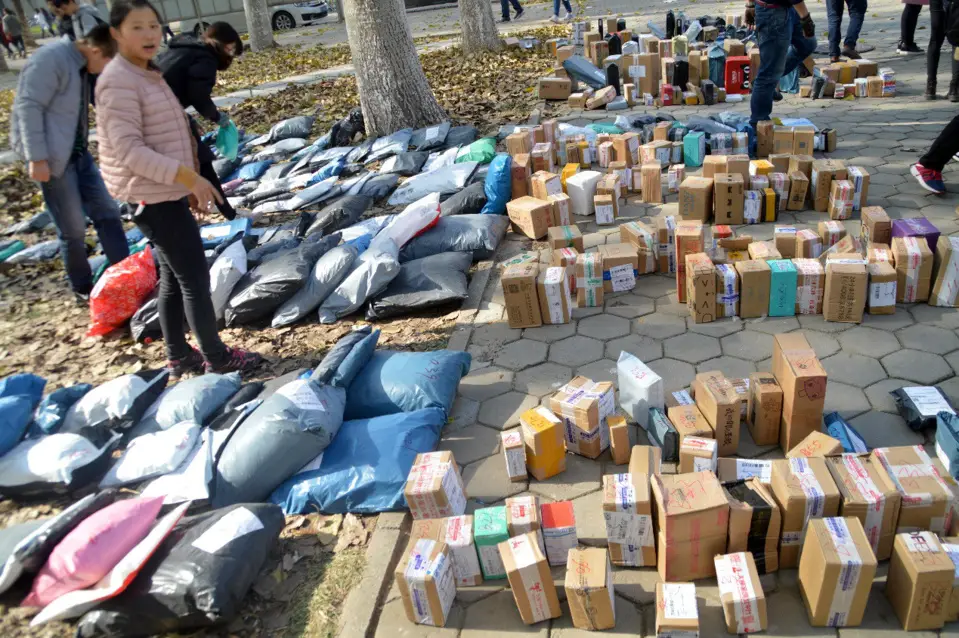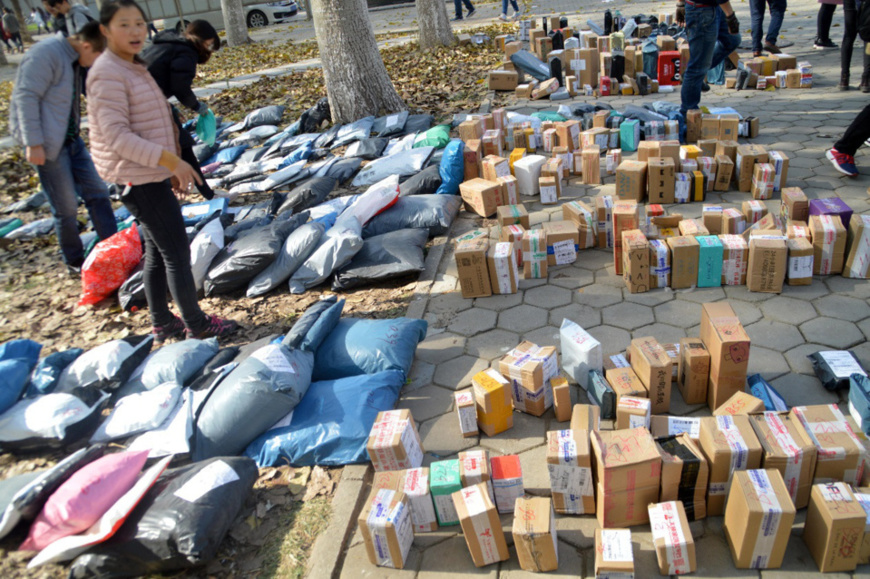By Huan Xiang from People’s Daily
Online shopping is not an area beyond the law, Zhang Mao, head of China’s State Administration of Industry & Commerce told press on Mar. 5, pledging that China will step up the protection of customer rights, regulate the market order and specify the primary responsibility of online platforms.
The statement came as online shopping and the development of virtual economy have triggered heated discussion during China’s political season, the annual meetings of National People’s Congress and the Chinese People’s Political Consultative Conference, also known as the two sessions.
Jack Ma, Chairman of Alibaba, China’s e-commerce giant, on Tuesday called on deputies of the two sessions through social media to “crack down on counterfeit and inferior goods like dealing with driving under the influence (DUI)”.
China has seen a rapid development momentum in e-commerce in recent years. In 2013, China replaced the US as the largest online retail market in the world. During the “Singles Day” promotion rave in 2016, which occurred on November 11 of each year, Alibaba Group announced that its sales volume reached 120.7 billion yuan ($17.5 billion).
Analysts predicted that in 2020, more than 50 percent of China’s total retail sales of goods will be done online.
The booming development also availed unlawful traders to swoop in. Misleading discounts, counterfeits and creation of false trade records have thrown a shadow on the online business, which harms not only the physical economy, but the production of legal and quality commodity.
From January to October 2016, Shanghai Administration for Industry & Commerce processed 158,100 cases of customer complaint, a 17.6 percent year-on-year growth. Among them, 7,2400 cases involve online shopping, showing a 58.1 percent year-on-year increase and 1,1100 cases concern the quality of goods sold online, accounting for 15.3 percent of the complaints.
Campaign against fake and inferior goods sold online conforms to the common interests of all physical industries and costumers. The Chinese government has followed the issue for a long time.
General Administration of Quality Supervision, Inspection and Quarantine of China has vowed to, by taking full advantage of big data, cloud computing and other technologies, integrate the data on the anti-counterfeit campaign of online business and release warning information through the media to guide the responsible spending of customers.
State Administration of Industry & Commerce will carry out supervision on the main areas of customer right protection in the next three years to effectively curb online infringement and counterfeit.
Pic:
The students of Liaocheng University in Shandong province are picking their parcels of the products they bought online during the “Singles Day” promotion rave on December 15, 2016. The express delivery industry usually embraces a business peak following the shopping spree on November 11 each year. (Photo: People’s Daily Online)
The statement came as online shopping and the development of virtual economy have triggered heated discussion during China’s political season, the annual meetings of National People’s Congress and the Chinese People’s Political Consultative Conference, also known as the two sessions.
Jack Ma, Chairman of Alibaba, China’s e-commerce giant, on Tuesday called on deputies of the two sessions through social media to “crack down on counterfeit and inferior goods like dealing with driving under the influence (DUI)”.
China has seen a rapid development momentum in e-commerce in recent years. In 2013, China replaced the US as the largest online retail market in the world. During the “Singles Day” promotion rave in 2016, which occurred on November 11 of each year, Alibaba Group announced that its sales volume reached 120.7 billion yuan ($17.5 billion).
Analysts predicted that in 2020, more than 50 percent of China’s total retail sales of goods will be done online.
The booming development also availed unlawful traders to swoop in. Misleading discounts, counterfeits and creation of false trade records have thrown a shadow on the online business, which harms not only the physical economy, but the production of legal and quality commodity.
From January to October 2016, Shanghai Administration for Industry & Commerce processed 158,100 cases of customer complaint, a 17.6 percent year-on-year growth. Among them, 7,2400 cases involve online shopping, showing a 58.1 percent year-on-year increase and 1,1100 cases concern the quality of goods sold online, accounting for 15.3 percent of the complaints.
Campaign against fake and inferior goods sold online conforms to the common interests of all physical industries and costumers. The Chinese government has followed the issue for a long time.
General Administration of Quality Supervision, Inspection and Quarantine of China has vowed to, by taking full advantage of big data, cloud computing and other technologies, integrate the data on the anti-counterfeit campaign of online business and release warning information through the media to guide the responsible spending of customers.
State Administration of Industry & Commerce will carry out supervision on the main areas of customer right protection in the next three years to effectively curb online infringement and counterfeit.
Pic:
The students of Liaocheng University in Shandong province are picking their parcels of the products they bought online during the “Singles Day” promotion rave on December 15, 2016. The express delivery industry usually embraces a business peak following the shopping spree on November 11 each year. (Photo: People’s Daily Online)
 Menu
Menu
 Online shopping is not a territory outside the law: Chinese official
Online shopping is not a territory outside the law: Chinese official

















